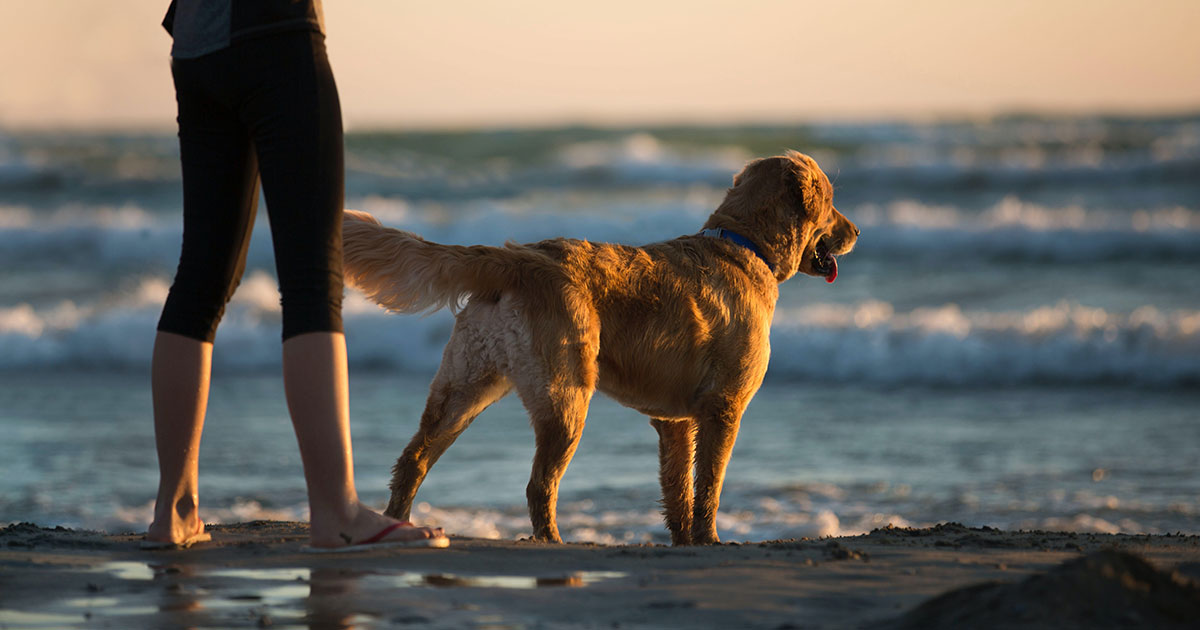National Drowning Day took place just recently (25 July). The initiative is aimed at us humans, but I feel it’s a good point to consider dog water safety too.
As a regular sea user I am all too aware of the basic safety measures needed to stay safe (even in good weather), but what does your dog (or you) know?
This taps into my previous blog on secondary or dry drowning, but dog safety on the beach is needed for various reasons, not just drowning. For example:
- Shingle beaches can be hard for paws to walk on, especially if they are sloped.
- Shells can be broken and as sharp as glass – cut pads happen on beaches too.
- It’s also important to keep an eye out for the small disposable bbqs that get left around. They stay hot for a very long time and also heat the ground they were on, and smell of food – so a tempting but potentially dangerous beach find.
Dog swimming and human drowning
Each year a number of people drown after following their dog into the water. Usually the dog heads in to swim and appears to get into trouble, and the owner follows. In many of these situations the dog is later recovered safe and well, but the owner is not always so lucky.
The simplest thing would be to keep your dog on the lead if the water is fast-moving or would be hard to escape from. However, you may not realise these things until your dog is in the water. The take home from this blog is this information from the RNLI’s advice and tips on safe dog walking by the coast:
It’s important to keep yourself safe when you walk your dog. Please remember:
- Keep me on a lead if we’re close to cliff edges or fast-flowing rivers.
- If I go into the water or get stuck in mud, don’t go after me. Move to a place I can get to safely and call me – I’ll probably get out by myself.
- If you’re worried about me, telephone 999 or 112 and ask for the Coastguard.
The RNLI will come out for a dog in the water, and they’d rather do that than have to come out to you in the water too. It’s against your natural instinct as a dog owner, but you’re needed on shore to raise the alarm and be there when your dog returns. While the RNLI are amazing at saving lives they would rather not have to give you a BOGOF offer with your dog.
Note:
This summer, there are fewer lifeguard patrols in operation than normal. If you get in trouble at the coast, telephone 999 and ask for the coastguard. For the latest advice, visit the RNLI’s beach safety page.

Leave a Reply